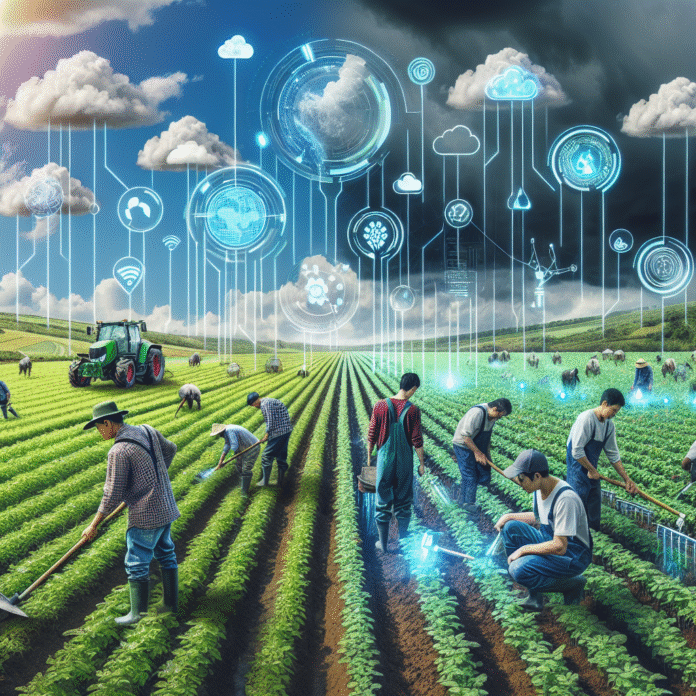Farmers Embrace AI Apps for Enhanced Yields and Climate Solutions
Farmers Embrace AI-Driven Applications to Enhance Crop Yields and Combat Climate Challenges
In the face of increasing climate challenges and the urgent need to boost agricultural productivity, farmers are increasingly turning to artificial intelligence (AI)-powered applications. These innovative tools are revolutionizing traditional farming practices, enabling farmers to make data-driven decisions that enhance crop yields and promote sustainable land management.
The integration of AI technology in agriculture allows for the analysis of vast amounts of data, including weather patterns, soil conditions, and crop health. Advanced algorithms can predict optimal planting times, recommend precise irrigation schedules, and identify pest infestations before they become detrimental. As a result, farmers are not only improving their crop outputs but also minimizing resource waste, thereby fostering a more sustainable approach to farming.
Moreover, climate change has introduced unpredictability in weather conditions, making it essential for farmers to adapt quickly. AI applications can provide real-time insights and forecasts, helping farmers to react proactively to adverse weather events such as droughts or floods. For instance, some apps utilize satellite imagery and sensors to monitor crop health and growth, enabling farmers to adjust their strategies in response to changing environmental conditions.
The benefits of AI in agriculture extend beyond individual farmers; they also contribute to broader food security efforts. By increasing yields and reducing losses, AI applications play a vital role in addressing the global demand for food, which is projected to rise significantly in the coming decades. Furthermore, these technologies can assist farmers in adopting more environmentally friendly practices, such as reducing chemical use and optimizing water consumption.
As the agricultural sector continues to evolve, the adoption of AI-powered apps is likely to become even more prevalent. Investment in agricultural technology and training for farmers on how to effectively utilize these tools will be crucial. This shift not only promises to enhance productivity but also to create a more resilient agricultural system capable of meeting the challenges posed by climate change.
In conclusion, AI-driven applications are transforming the agricultural landscape, offering farmers innovative solutions to improve yields while addressing the pressing challenges of climate change. As technology continues to advance, the potential for AI to support sustainable farming practices and enhance global food security remains immense.


